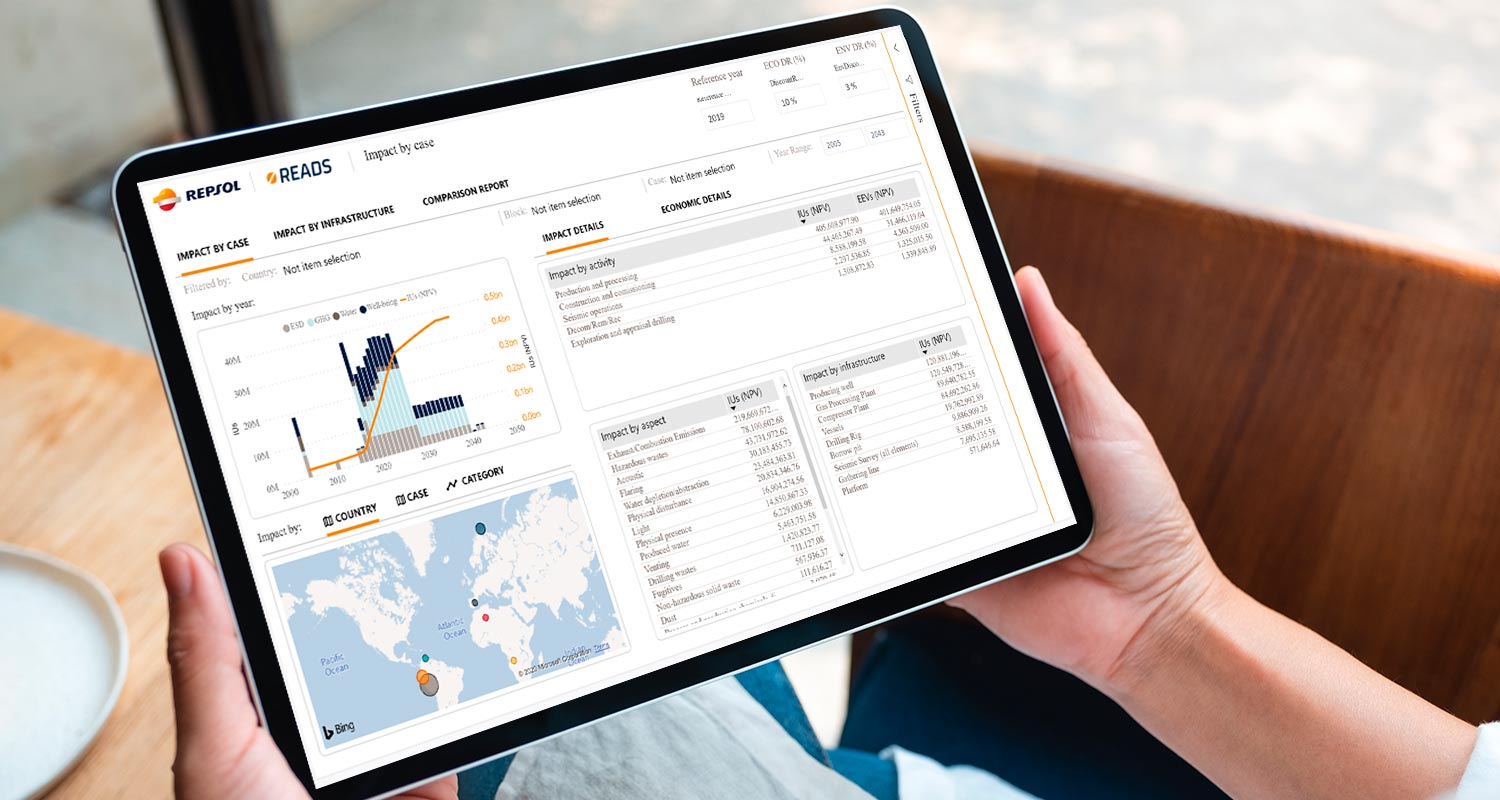Identify
Analyse impacts on climate, well-being, water, biodiversity and ecosystem services.
Quantify
Count biophysical impact units (BIUS) - tons, hectares, cubic metres and decibels.
GEMI-READS Project
At Repsol, we have developed an innovative methodology to carry out a comprehensive assessment of the environmental impacts and dependencies of the Company's activities.
Repsol and the natural capital
Natural capital encompasses the natural resources that contribute to the well-being of people, the development of society, and the advancement of the global economy. This contribution is made through the ecosystemic and abiotic services it provides in the form of energy, materials, cultural aspects, etc. Companies such as Repsol depend on natural capital and their operations generate impacts on it. Its conservation and protection is a fundamental factor in achieving sustainable development.
Why is it important to value natural capital?
A pioneering tool
We have developed a natural capital approach to decision-making through the Global Environmental Management Index (GEMI) methodology and the associated digital tool that allows for the comprehensive assessment of environmental impacts and dependencies of projects and operations at a global level: READS.

GEMI and READS are based on the analysis of the relationship between the components of natural capital (plants, animals, air, water, etc.) and the ecosystem services they provide, with the activities carried out by Repsol.
This relationship is measured in two ways:
The following steps are used to analyse the impacts on natural capital:
Identify
Analyse impacts on climate, well-being, water, biodiversity and ecosystem services.
Quantify
Count biophysical impact units (BIUS) - tons, hectares, cubic metres and decibels.
Monetize
Quantifying and monetising natural capital gains and losses.
Manage
Apply the impact mitigation hierarchy supported by cost-benefit analysis methods.
Our internationally recognised methodology
This working system, which follows the principles of ISO 14008 on monetary valuation of environmental impacts and related environmental aspects, has been recognised by the experts of the Capitals Coalition and the United Nations Environment Programme's World Conservation Monitoring Centre (UNEP-WCMC) for its scientific robustness and for being aligned with the Natural Capital Protocol and the Biodiversity Guidance accompanying it.
Its application is a sign of Repsol's commitment to the principles established in the Natural Capital Protocol for measuring and assessing the impacts and dependencies of the Group's operations.
Need more information?
Contact us if you are interested in the GEMI-READS Project and want to learn more about our methodology.